This 4K Ultra HD “Limited Edition” from Arrow Video is now available for purchase.
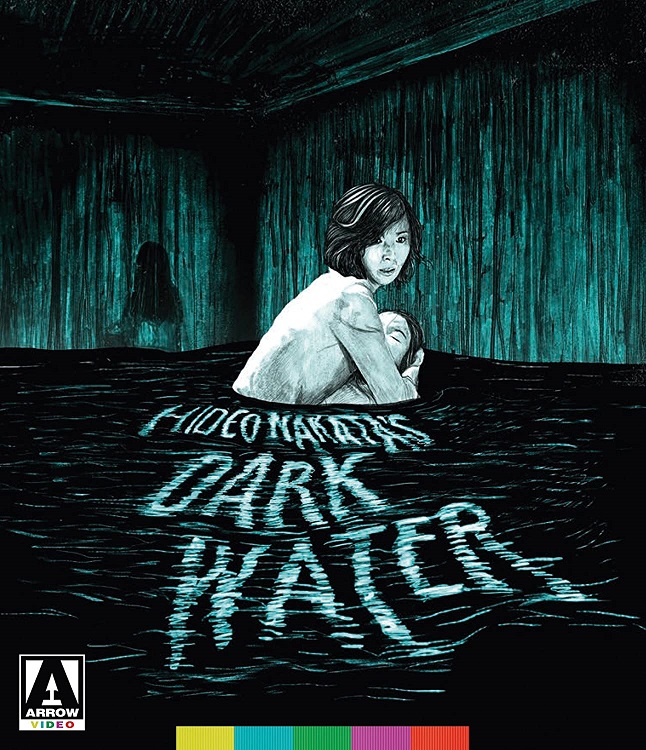
There are certain horror pictures that, while not explicit, can still manage to create an eerie and disquieting mood that leaves a big impact. The Japanese film Dark Water is one of those efforts. The characters aren’t exactly being terrorized or fighting for their lives in the same manner that the leads in a slasher might. Yet this movie has an incredible sense of atmosphere that sends shivers down the spine in an entirely different kind of way. This is especially true for viewers who are parents of a small child.
The film arrived during the height of the J-Horror craze that included supernatural-themed titles like Ringu, Ju-On: The Grudge, Kairo aka Pulse. Dark Water, which actually comes from the same director who helmed Ringu (both films were also based upon the work of novelist Koji Suzuki) is now being given a “Limited Edition” 4K Ultra HD release by Arrow Video. This is a feature that has never looked crystal clear on any format, but this edition does show an improvement over the old releases, particularly during the many shocks involving water. The release also comes with some great bonuses, including interviews with the filmmakers and cast.
For those who haven’t seen the film, the plot follows recently divorced mother Yoshimi Matsubara (Hitomi Kuroki), who is trying to start a new life with her 6-year-old daughter Ikuko (Rio Kanno). She eventually finds employment as a proofreader at a small publishing house, but the pay isn’t very high. The pair are forced to relocate to a sparsely populated and run-down apartment. Not long after their arrival, they find leaks and pools of water appearing in their flat. The youngster discovers a bag of toys from a similarly-aged girl named Mitsuko (Mirei Oguchi) who vanished a year earlier. As Yoshimi learns more about the girl and her disappearance, supernatural events begin occurring. It isn’t long before Yoshimi’s concerned ex-husband Kunio Hamada (Fumiyo Kohinata) decides to engage in a legal fight for full custody of Ikuko.
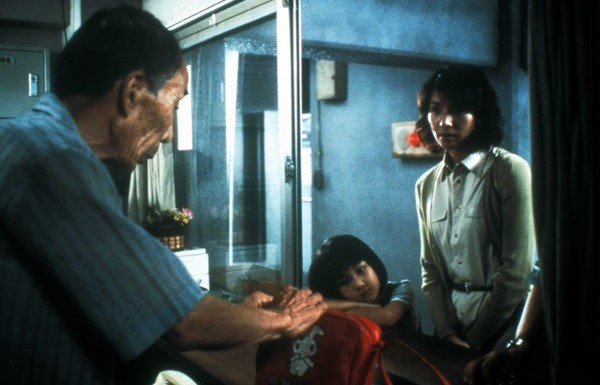
As mentioned, the movie doesn’t try to shock audiences with graphic jolts or terrifying visions. Its approach is far more subtle but equally effective. The movie permeates dread from beginning to end. While the main spirit is sighted only briefly and isn’t overtly violent, there’s a real sense of tragedy and unease to the story. And as secrets are revealed and the ghost is more overt in its attempts to manipulate the mother and daughter, there are incredibly tense moments. Part of the fear comes from the fact that it’s difficult to see what’s beneath or in the water and when big things do occur, they are all the more startling. Highlights include a bathtub overflowing with water, a tank on top of the building that houses a dark secret, and a giant wave during the climax that comes crashing from an elevator onto a fearful child.
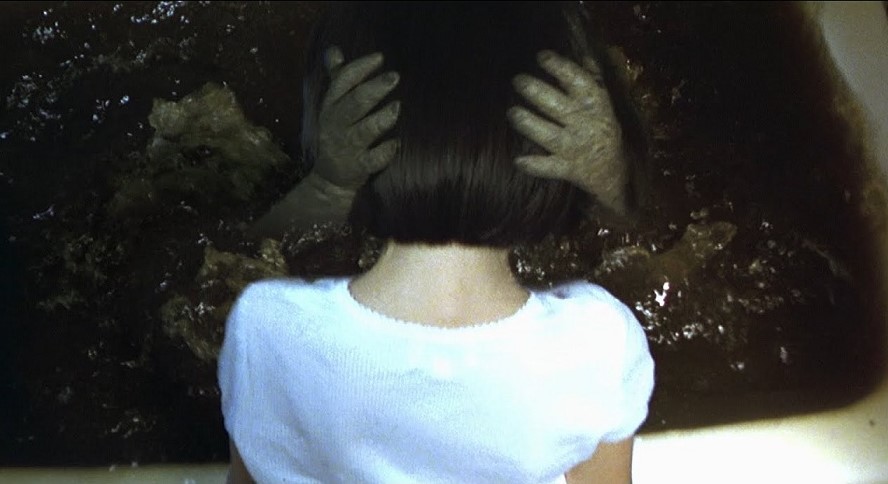
It’s a very eerie picture and one that also explores the trials of being a single parent struggling to provide for their child. This is a big theme, with Yoshimi (who was also abandoned for a time as a child) experiencing guilt and other emotions over the effect of her actions on her daughter. The supernatural threat also shares a similar backstory and a sad fate, adding to the sense of despair. As a parent, this aspect of the story is relatable and one really feels for the mom, daughter, and even the ghost. But the creepy water-based set pieces are scary enough that the whole movie even keeps young horror fans on the edges of their seats. It just happens to be an excellent horror film with more subtext than anticipated.
The image on this disc has been scanned and restored in 4K Ultra HD by the film’s director of photography. This movie has always had a slightly soft look to it, so it isn’t the sharpest looking transfer in the world. However, it is a definite improvement over the previous versions on regular Blu-ray and DVD. As you might have guessed, there is a lot of falling rain in the picture which tends to eliminate some background detail during the exteriors, but this appearance is intentional and the overall presentation is very strong. The picture really shines during the climactic interior bits involving strange occurrences in and around water.
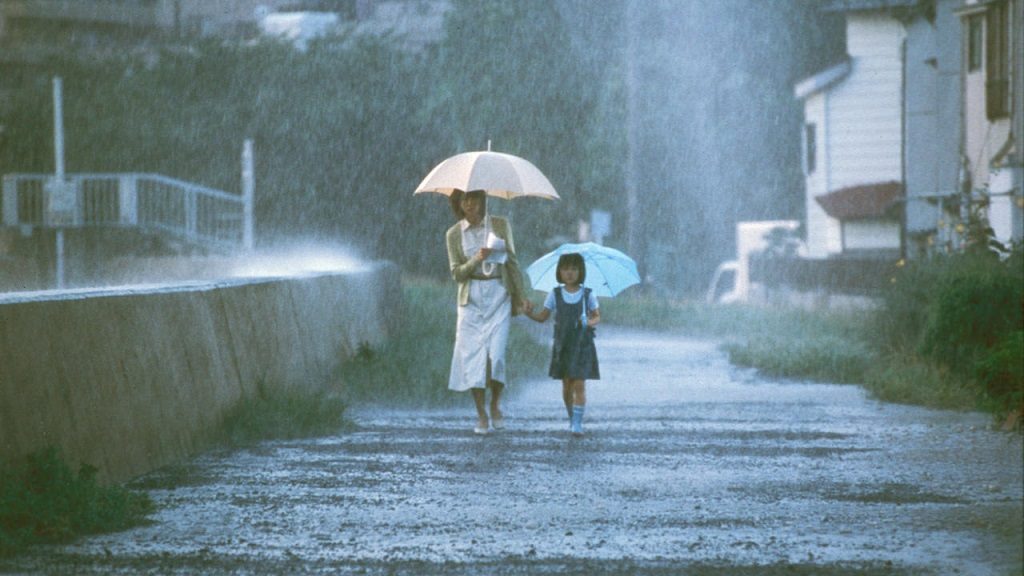
There are also impressive bonus features. The first is an interview with director Hideo Nakata (who had previously helmed Ringu in 1998). Nakata talks about his start in the Japanese film industry, admitting that while he enjoys horror pictures, he wouldn’t necessarily describe himself as someone who set out to make chillers. The filmmaker simply noted the sudden rising popularity in J-Horror, was given a horror project and used it to help fund a documentary he was making. After it’s positive reception, he was given Ringu project and tried to deliver the material in a creative way. He goes on to suggest that after making a sequel and other J-Horror projects, he ended up being stereotyped as a genre director. Nakata notes a comment by American filmmaker Wes Craven that once you helm three genre pictures, that’s all that studios will ever allow you to make. Still, Nakata doesn’t seem to have minded the way things worked out and appreciates all the positive comments about his films.
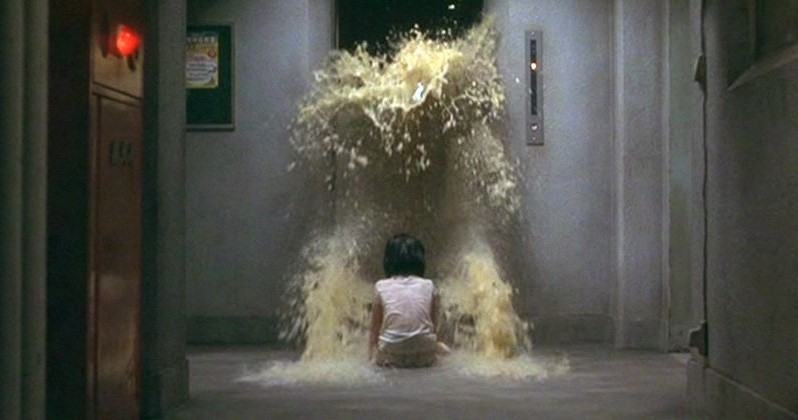
The director also notes a major water-based stunt involving a child in the film. Apparently, they tested the best way for a wave to flow out of the set’s elevator doors without hurting the young performer. It all went perfectly and looks incredible, but he admits he’d never be able to do that kind of a stunt today. He also talks about his relationship with the two screenwriters. Nakata likes to rewrite scripts himself and chop extraneous material out and suggests that the two hated his changes and sent him a nasty email saying that the final picture wasn’t frightening (I can only guess these individuals weren’t parents).
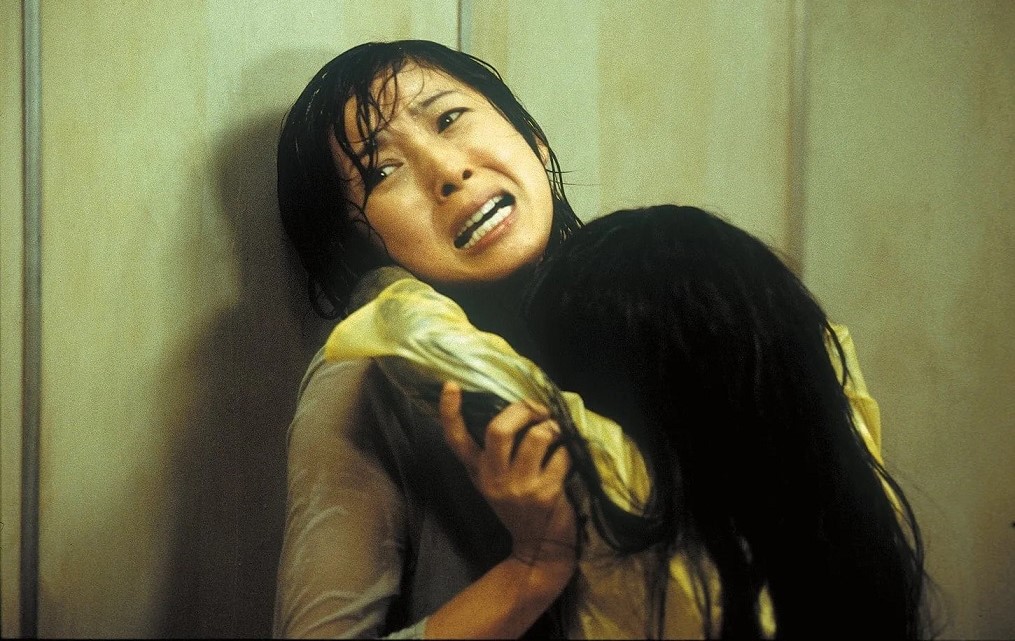
There is also a fascinating discussion with author Koji Suzuki, who penned the novels Ringu and Dark Water. Suzuki notes his own personal writing process. He had heard rumors about a videotape that killed viewers and thought it was a fascinating urban legend. The author set out to research and write a book about the phenomenon, but it eventually turned into a work of fiction. Suzuki notes that for this, and Dark Water, the tales were inspired by real events and thoroughly researched, which he believes helped add a sense of realism and authenticity to the stories and films. He goes into detail about why he thinks this movie struck a nerve and how, as a parent himself, he thought the narrative and the finished adaptation was very effective. The writer also seemed glad, as per his own request, that Nakata didn’t explicitly or repeatedly show the spirits in his adaptations, leaving a fair amount to the imagination. He loved that when supernatural events do occur, they were presented in unique and distinctive ways.
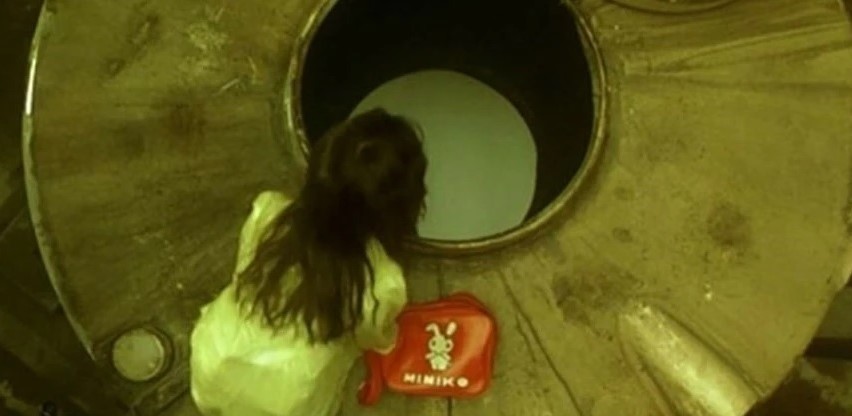
There’s also an interview with cinematographer Junichiro Hayashi, who talks about his career, the look of the movie and lighting with a movie that features so much rain onscreen. The director of photography also goes into detail about the slight differences in the roles of Japanese crew positions compared to the same positions in other countries.
Additionally, the disc includes interesting archive interviews with actors Hitomi Kuroki and Asami Mizukawa (who appears briefly as a teenage version of Ikuko), as well as a discussion with theme song artist Shikao Suga. There is also an original ‘making-of’ documentary and publicity materials including trailers and TV spots for the film. And like with other titles from the distributor, there is a reversible sleeve featuring new and original artwork for the movie, plus a nice illustrated booklet with writing on the feature.
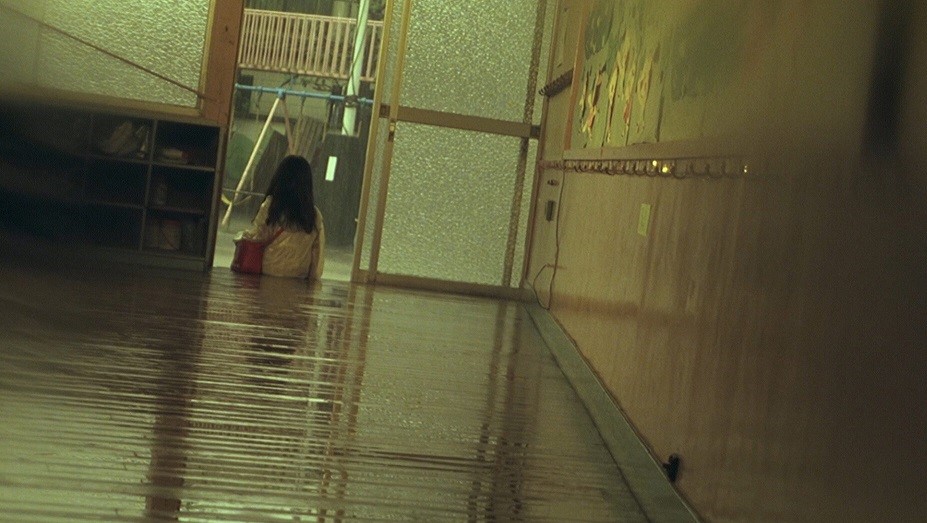
I recall having enjoyed Dark Water when it initially arrived on disc in North America, but the movie really holds up and is even stronger now that one can relate to the horrors of seeing a child in peril, as well as the challenges of being a parent. This is an excellent and at times heart-wrenching creeper that lingers in the memory and is a wonderful example of J-Horror at its finest. The 4K Ultra HD marks an improved image and the extras are illuminating. If you’re interested in chillers from Japan or just want to see a scary ghost story, it’s well-worth picking up.


